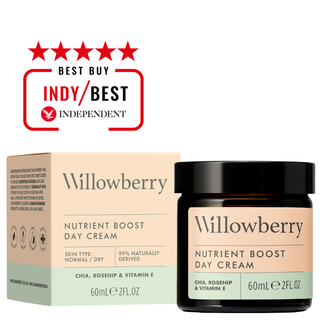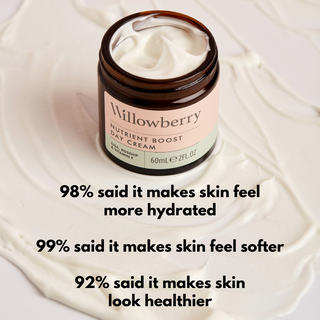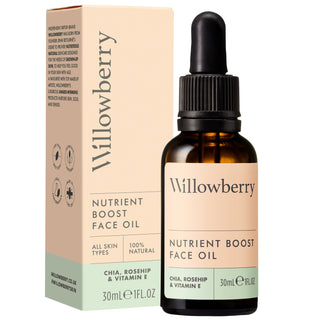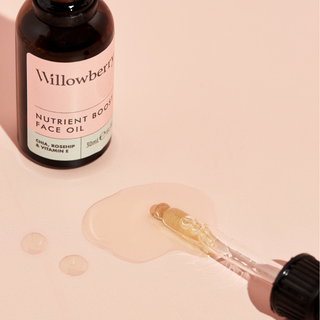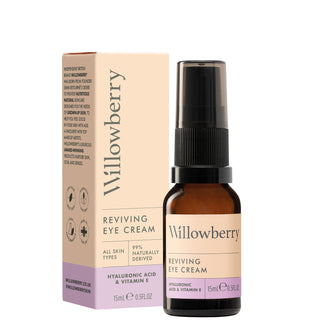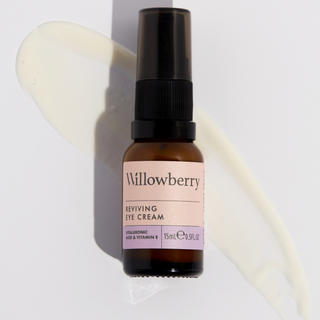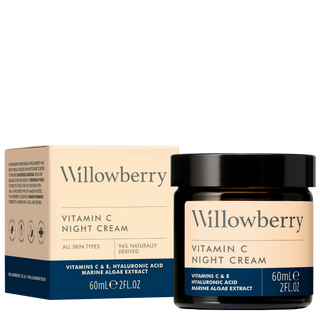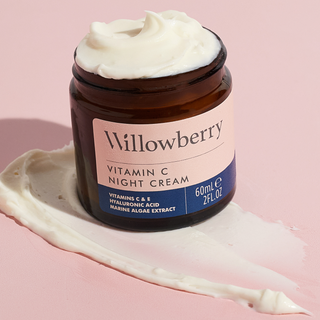Kate Dimmer is a registered Nutritional Therapist based in Cheltenham, Gloucestershire, who aims to dispel myths and misunderstandings about healthy eating and give you the support and tools to nourish your body for life. Kate talks to Willowberry natural skincare about how diet affects the skin, the impact of hormones on the complexion and her top skin-boosting ingredients.
How much impact does what you eat have on the skin’s appearance?
What we eat affects our health in general and so this, in turn, can affect our skin. If we have an allergy, intolerance or nutritional imbalance, it can show itself in the appearance of our skin such as rashes, eczema, dryness and acne.
If someone wants to improve the look of their skin through a healthier diet, what main steps should they take?
Firstly, (and I practise this) you must listen to your body. Pay close attention to how foods make you feel.
Secondly, you’ve heard this before, but stay hydrated by drinking plenty of pure, filtered water. I’m sure those in the beauty industry would agree with me! It is recommended that women should aim to drink approximately 1,600-2,000ml per day (depending on activity levels), so start your day with a nice big glass. I start my day with a glass of water and herbal tea.
Next, I would encourage you to eat plenty of vegetables and fruit because, aside from fibre, vitamins and minerals, they contain plant compounds called phytonutrients that have a protective effect. Aim for two pieces of fruit and five portions of veg per day. A portion is about a handful. Berries are really good to include in the diet as the dark red, blue and purple colours are rich in antioxidants including anthocyanins, which protect against cell damage. Try to have as many varied colours of vegetables as possible, as the different colours in the pigment of the skins contain different protective compounds.
Lastly, limit sugar, artificial sweeteners and refined carbohydrates. These foods play havoc with blood sugar levels and can disrupt the good bacteria in our guts. Good gut health is associated with good general health and some skin conditions can be linked to imbalances in the microbiome.
How can hormones affect the skin’s appearance?
Hormones can really affect our skin. Many people will have experienced spots before their period. This is because mid-cycle, progesterone levels increase, causing more sebum to be produced by the skin. Furthermore, just before menstruation, testosterone rises, further increasing sebum from sebaceous glands.
Another way that hormones influence the skin is when a woman becomes oestrogen dominant (her hormones are imbalanced), as this can aggravate cellulite. But other things can affect the skin, too. For example, stress disrupts our hormones, causing breakouts.
For balanced hormones, we need to have a healthy gut and a fully functional liver. Making sure we have good gut flora and regular bowel movements is important for hormonal balance. The liver needs to be functioning optimally to detoxify hormones and other compounds that the body needs to get rid of. The best way to support the gut and liver is again through a variety of vegetables including beetroot, avocado, bitter leaves like watercress, nettle, dandelion and rocket and some protein like free-range eggs, grass-fed meat and oily fish. Some people might find fermented vegetables like sauerkraut useful for gut health.
Equally, there are foods and drinks that can be disruptive to hormone balance. Alcohol and caffeine are stimulants, which can imbalance hormones and also disrupt sleep. It’s important to practise moderation with these and I would not recommend more than 3 caffeinated (or decaf) drinks per day.
What are your top 5 skin-boosting ingredients?
1. Healthy fats are essential for so many functions in the body including hormone production and absorption of nutrients, so I always include a variety in my diet and I include olive oil in my meals every day. Olive oil contains numerous plant compounds that have anti-inflammatory properties. I am also a massive fan of coconut oil and I eat oily fish every week.
2. Vitamin E is a fat-soluble vitamin (so you need to have fat in the diet to absorb it) that has antioxidant properties and protects against cell damage. Vitamin E has been shown to support good skin and hair as well as help PMT. I eat many foods containing vitamin E but almonds, hazelnuts and avocados are good examples.
3. Lutein is a phytonutrient with numerous health benefits (including eye health) and may prevent skin wrinkling and provide some protection from skin damage from the sun. The best sources are leafy greens like kale, spinach and spring greens, orange vegetables and egg yolks. I eat a lot of these foods –I eat leafy greens every day!
4. Vitamin C is essential for cell heath. It really supports good skin through its antioxidant effect and its role in collagen production, so it may help keep skin firm and supple. This is yet another reason to eat your fruit and veg! Good sources are fresh currants (blackcurrants are in season in the UK in July), strawberries, guava, kiwi, citrus fruit, peppers, chives, parsley, sprouts and kale.
5. Lycopene is another nutrient to support good skin and health in general. It’s in the same family as Lutein (the carotenoid family) and boasts many protective effects. Some studies have shown lycopene to improve skin smoothness and protect against ageing. Good sources are watermelon, cooked tomatoes and guava.
How do you look after your own wellbeing?
I really do look after myself nowadays. I eat well and try to move my body and get outside every day, plus I prioritise sleep. I have acupuncture regularly and lymph-drainage massage to look after my back.
I have now learned to really manage my stress and I say ‘no’ more and take time for myself every day. This is not an indulgence. I'm a mother of two, a wife, a daughter, a friend and businesswomen. If I didn’t look after myself, I couldn’t function properly. I always encourage my clients to take time for self-care, too.
Visit Kate Dimmer’s website at www.katedimmer.com. You can also find Kate on Instagram and Facebook.
Willowberry natural skincare is dedicated to your skin’s wellbeing to help it feel content, comfortable, happy and balanced. Just how we all want to feel in ourselves, too! The Willowberry Wellbeing blog aims to inspire you to live a healthy, balanced and happy life for enhanced wellbeing.


